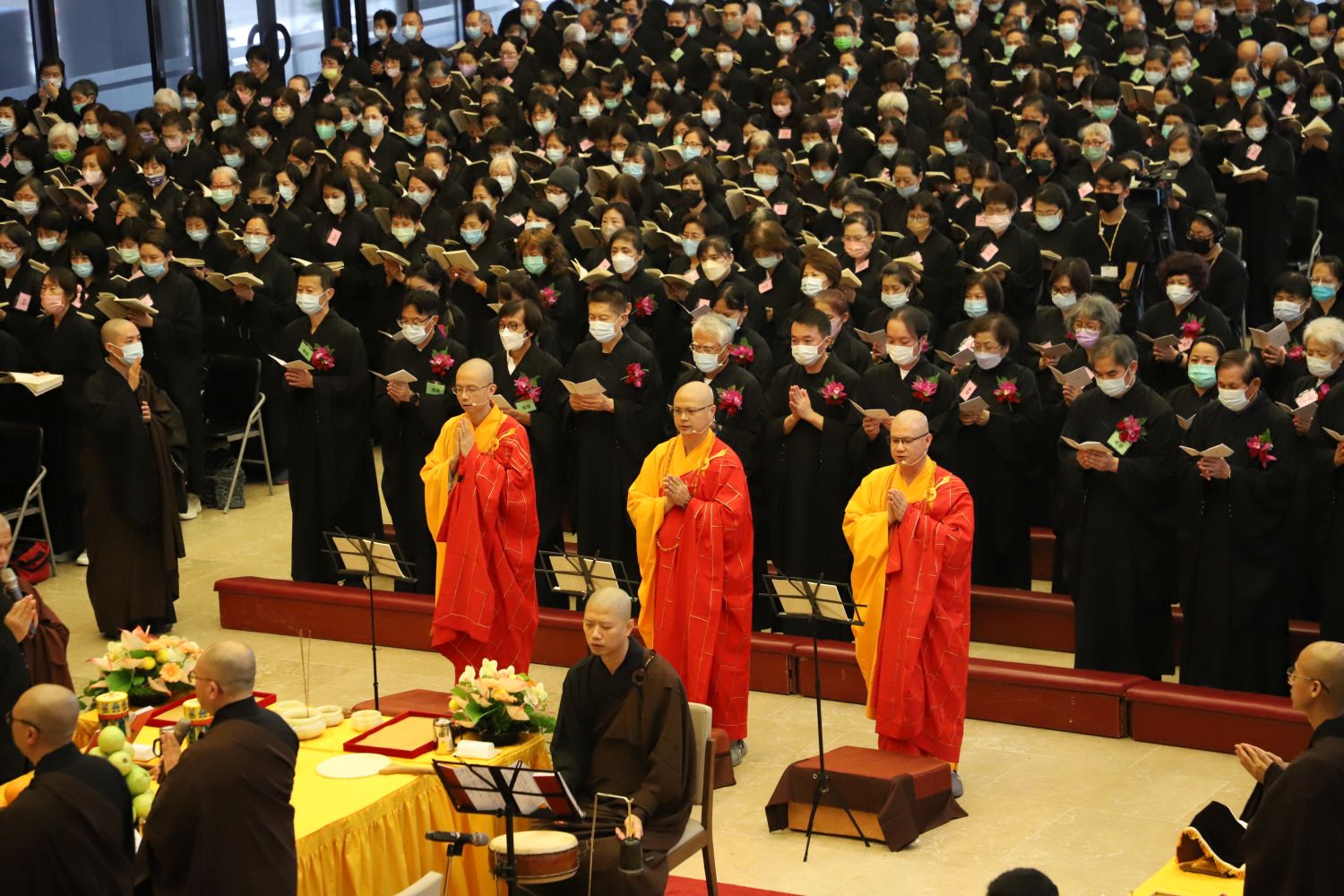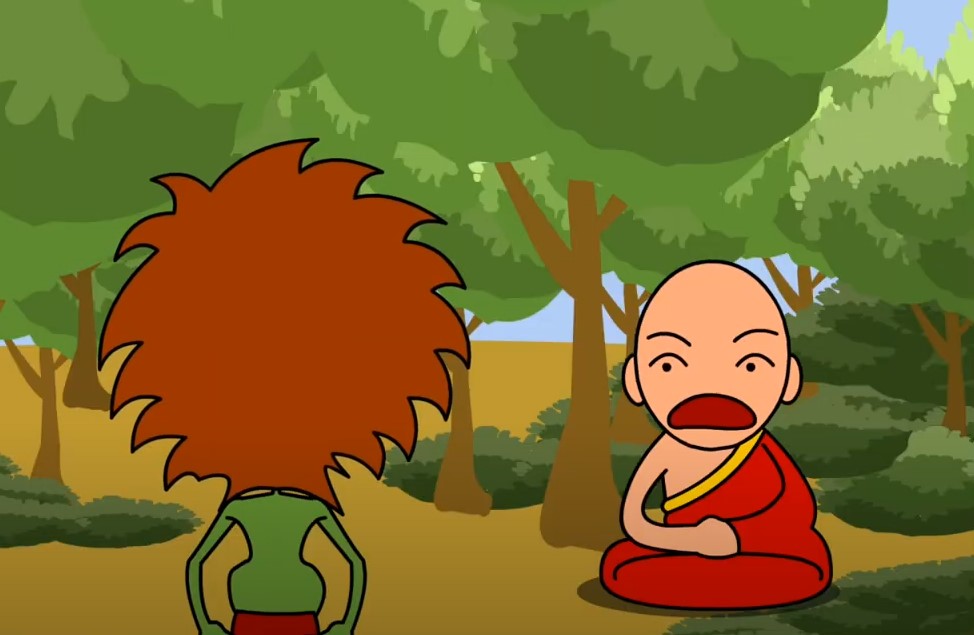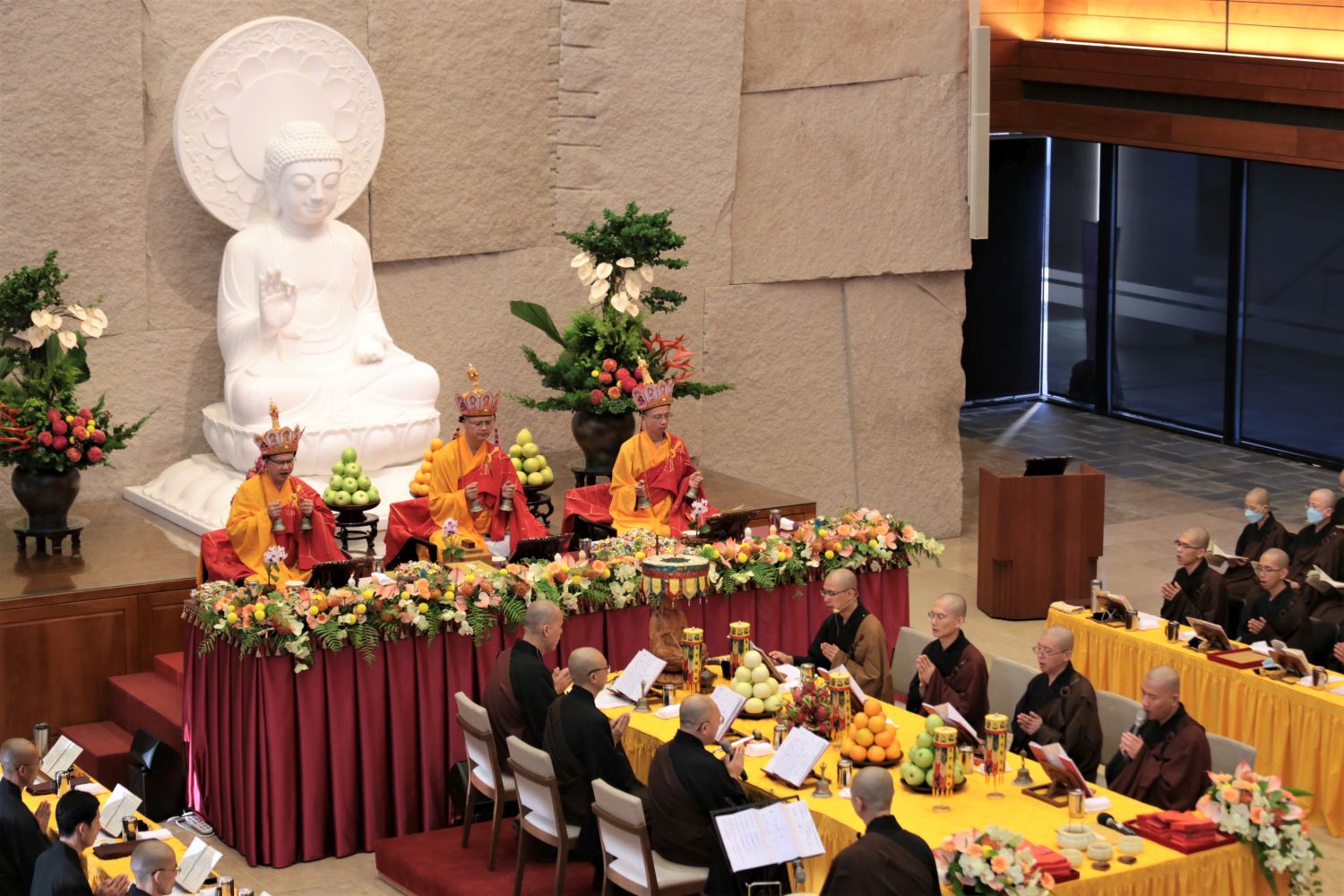Special Topics
Dharma Assemblies in Lunar July (II): Yogacara Ulka-mukha Dharma Service to Save Hungry Ghosts from Suffering
 The Yogacara Ulka-mukha Dharma Service, or the ritual for the release of flaming mouths, is designed for giving food to beings in the hungry ghost realm in order to relieve their pain and distress of hunger. More importantly, it is meant to teach these beings the Dharma, thereby leading them to take the refuge, receive the precepts, and thus soon leave suffering behind.
The Yogacara Ulka-mukha Dharma Service, or the ritual for the release of flaming mouths, is designed for giving food to beings in the hungry ghost realm in order to relieve their pain and distress of hunger. More importantly, it is meant to teach these beings the Dharma, thereby leading them to take the refuge, receive the precepts, and thus soon leave suffering behind.Origins
The ritual for the release of flaming mouths can be traced back to the Dharani Sutra for Saving the Burning-Mouth Hungry Ghosts (Pretamukhāgnivālāyaśarakāra-dhāraṇī). According to the sutra, one day, Ananda--- one of the Buddha's ten great disciples in addition to being his cousin--- was practicing meditation in the forest, when he suddenly saw an ugly and horrifying hungry ghost named "Flaming Mouth". His face was haggard, his hair disheveled, his neck as thin as a needle, his belly distended like a mountain, and his mouth was on fire. This appearance made Ananda shocked and startled.
 The hungry ghost came to Ananda and said, "You will die in three days and be reborn in the realm of hungry ghosts, because of the karma of miserliness and greed in your past life." Hearing this, Ananda was astonished and panicked, not knowing what to do, so he quickly sought help from the Buddha. The Buddha taught Ananda the Food Conversion Mantra, and told him to recite the Dharani seven times, which would turn food into nectar--- enough to fill the dharma-realms--- and cause all hungry ghosts as many as the sands in the Ganges River to become satiated.
The hungry ghost came to Ananda and said, "You will die in three days and be reborn in the realm of hungry ghosts, because of the karma of miserliness and greed in your past life." Hearing this, Ananda was astonished and panicked, not knowing what to do, so he quickly sought help from the Buddha. The Buddha taught Ananda the Food Conversion Mantra, and told him to recite the Dharani seven times, which would turn food into nectar--- enough to fill the dharma-realms--- and cause all hungry ghosts as many as the sands in the Ganges River to become satiated.In Buddhism, the Yogacara Flaming-Mouth Service is a ritual for offering food to all beings in the realm of hungry ghosts, based on the Dharani Sutra for Saving the Burning-Mouth Hungry Ghosts. In Sanskrit, the word "yoga" means "connection". According to Master Baohua Shan Deji in the early Qing Dynasty, "yoga" requires the Vajra master presiding over the Dharma service to form the mudra with his hands, recite mantras and dharanis, and focus his mind on visualization. In doing so, his body, speech, and mind would become aligned with the precepts, concentration, and wisdom. Empowered by the Buddhas and Bodhisattvas' compassionate vows, both the monks practicing the Dharma and the fellow participants of the Yogacara Flaming-Mouth Service join together and compassionately aspire to help hungry ghosts and wandering spirits escape from suffering, take refuge in the Three Jewels, and walk the path toward Buddhahood. The assembly also uses this occasion to engage in the practice of six paramitas—generosity, observing the precepts, patience, diligence, concentration, and wisdom—for the benefit of self and others. "Flaming mouth" is actually the name of the lord of hungry ghosts. Due to his stinginess while alive, he suffered from hunger and thirst after death, and was thus called "flaming mouth".
Content of the Ritual
 In the Flaming Mouth Service, participants recite mantras to remove all kinds of Mara—such as the inner demon, the Skandha Mara, the Klesa Mara—from the souls of both the living and deceased, as well as the external demons. In addition, the Vajra master presiding over the service forms the mudra, and leads participants to concentrate and focus their minds, reciting the Heart Sutra, the Great Compassion Dharani and the ritual text, while engaging in visualization with a still mind. Toward the end of the service, the monastic recites the "text of summoning" to invite hungry ghosts, the souls of the violent dead, lonely ghosts, and the souls of the deceased kings and filial sons, to come to eat and drink. Meanwhile, sutra chanting and dharanis enable people and various sprits to engage in self-reflection, cultivate good karmic roots, and eliminate afflictions and attachments.
In the Flaming Mouth Service, participants recite mantras to remove all kinds of Mara—such as the inner demon, the Skandha Mara, the Klesa Mara—from the souls of both the living and deceased, as well as the external demons. In addition, the Vajra master presiding over the service forms the mudra, and leads participants to concentrate and focus their minds, reciting the Heart Sutra, the Great Compassion Dharani and the ritual text, while engaging in visualization with a still mind. Toward the end of the service, the monastic recites the "text of summoning" to invite hungry ghosts, the souls of the violent dead, lonely ghosts, and the souls of the deceased kings and filial sons, to come to eat and drink. Meanwhile, sutra chanting and dharanis enable people and various sprits to engage in self-reflection, cultivate good karmic roots, and eliminate afflictions and attachments.The Dharma assembly usually takes place from 4 to 11 p.m. Before the altar is opened, various Buddhas from the five directions and different kinds of lonely and wandering ghosts will be invited to approach the altar. After reciting the Flaming Mouth Hungry Ghost King (Ulkāmukha Pretarāja) Praise, candies, biscuits, and rice which have been empowered by the compassionate vows of the Buddhas and Bodhisattvas are given to hungry ghosts and spirits. During the puja, participants should concentrate on inviting the spirits to come and eat the food, and mustn't be distracted into picking up the food for offering. Doing so would, after all, negatively impact the procedure of the puja and may upset the spirits, causing them to become angry.
Related articles:
Deliverance Service Benefits Both the Living and the Deceased
The Seventh Lunar Month Dharma Assemblies (I): The Ullambana Assembly – Repay Our Parents' Kindness with Merit Transfer
Dharma Assemblies in Lunar July (II): Yogacara Ulka-mukha Dharma Service to Save Hungry Ghosts from Suffering
Dharma Assemblies in Lunar July (III): Practicing Repentance at Emperor Liang’s Repentance Eliminates Delusion, Karma, and Suffering
Q1: Where will our relatives go after death? If they are already reborn, would our prayers for the deceased help them?
Q2: Is it necessary to participate in Dharma assemblies if they are not performed for the deliverance of a deceased relative?
Q3: Why does Buddhism maintain that care and concern for the deceased can be conveyed through Dharma assemblies?
Q4: If we are unable to attend a Dharma assembly at a temple or monastery, can we, alternatively, perform the deliverance ritual at home for our deceased relatives or friends?
Q5: How do we go about dedicating the merit? Can our deceased relatives actually receive the merit that is being dedicated?
Resource: Issue 240 of Humanity Magazine, Dharma Drum Publishing Corporation
Translation: Chrisitina
Editing: Keith Brown, Chiacheng Chang (張家誠)
